The Money Supply Has Plummeted In The Biggest Drop Since The Great Depression
May 11, 2023
By The Mises Institute
Reprinted from Seeking Alpha
- Money supply growth fell again in March, plummeting further into negative territory after turning negative in November 2022 for the first time in 28 years.
- The fact that the money supply is shrinking at all is so remarkable because the money supply almost never gets smaller.
- Without ongoing access to easy money at near-zero rates, banks are finding that they’re in trouble in spite of claims from Fed Chairman Jay Powell that the banking system is “sound and resilient.”
Money supply growth fell again in March, plummeting further into negative territory after turning negative in November 2022 for the first time in twenty-eight years. March’s drop continues a steep downward trend from the unprecedented highs experienced during much of the past two years.
Since April 2021, money supply growth has slowed quickly, and since November, we’ve been seeing the money supply repeatedly contract for five months in a row. The last time the year-over-year (YOY) change in the money supply slipped into negative territory was in November 1994. At that time, negative growth continued for fifteen months, finally turning positive again in January 1996.
During March 2023, the downturn accelerated as YOY growth in the money supply was at –9.9 percent. That’s down from February’s rate of –6.6 percent, and far below March 2022’s rate of 7.1 percent. With negative growth now falling to near –10 percent, money-supply contraction is the largest we’ve seen since the Great Depression. At no other point for at least sixty years has the money supply fallen by more than 6 percent (YoY) in any month.
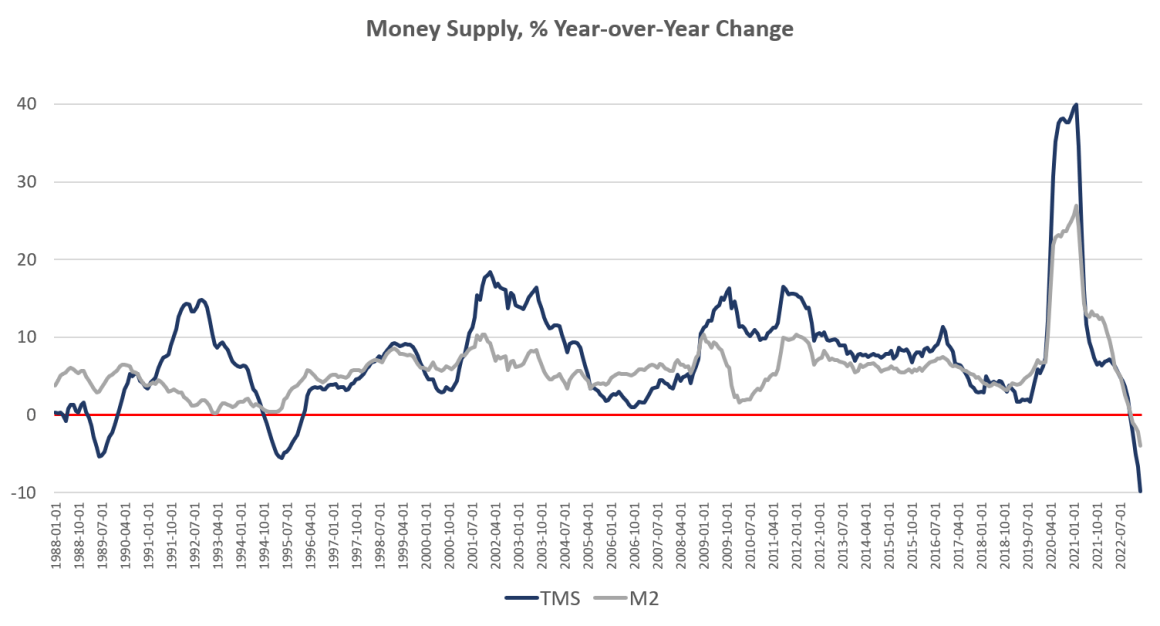
The money supply metric used here—the “true,” or Rothbard-Salerno, money supply measure (TMS)—is the metric developed by Murray Rothbard and Joseph Salerno, and is designed to provide a better measure of money supply fluctuations than M2.
The Mises Institute now offers regular updates on this metric and its growth. This measure of the money supply differs from M2 in that it includes Treasury deposits at the Fed (and excludes short-time deposits and retail money funds).
In recent months, M2 growth rates have followed a similar course to TMS growth rates, although TMS has fallen faster than M2. In March 2023, the M2 growth rate was –3.99 percent. That’s down from February’s growth rate of –6.65 percent. March’s growth rate was also well down from March 2022’s rate of 9.6 percent.
Money supply growth can often be a helpful measure of economic activity and an indicator of coming recessions. During periods of economic boom, money supply tends to grow quickly as commercial banks make more loans. Recessions, on the other hand, tend to be preceded by slowing rates of money supply growth.
Negative money supply growth is not in itself an especially meaningful metric. But the drop into negative territory we’ve seen in recent months does help illustrate just how far and how rapidly money supply growth has fallen. That is generally a red flag for economic growth and employment.
The fact that the money supply is shrinking at all is so remarkable because the money supply almost never gets smaller. The money supply has now fallen by $2.2 trillion (or 10.2 percent) since the peak in April 2022. Proportionally, the drop in money supply since 2022 is the largest fall we’ve seen since the Depression. (Rothbard estimates that in the lead up to the Great Depression, the money supply fell by 12 percent from its peak of $73 billion in mid-1929 to $64 billion at the end of 1932.)1
In spite of this recent drop in total money supply, money-supply growth remains well above the trend that existed during the twenty-year period from 1989 to 2009. To return to this trend, the money supply would have to drop at least another $5 trillion or so—or 25 percent—down to a total below $15 trillion.
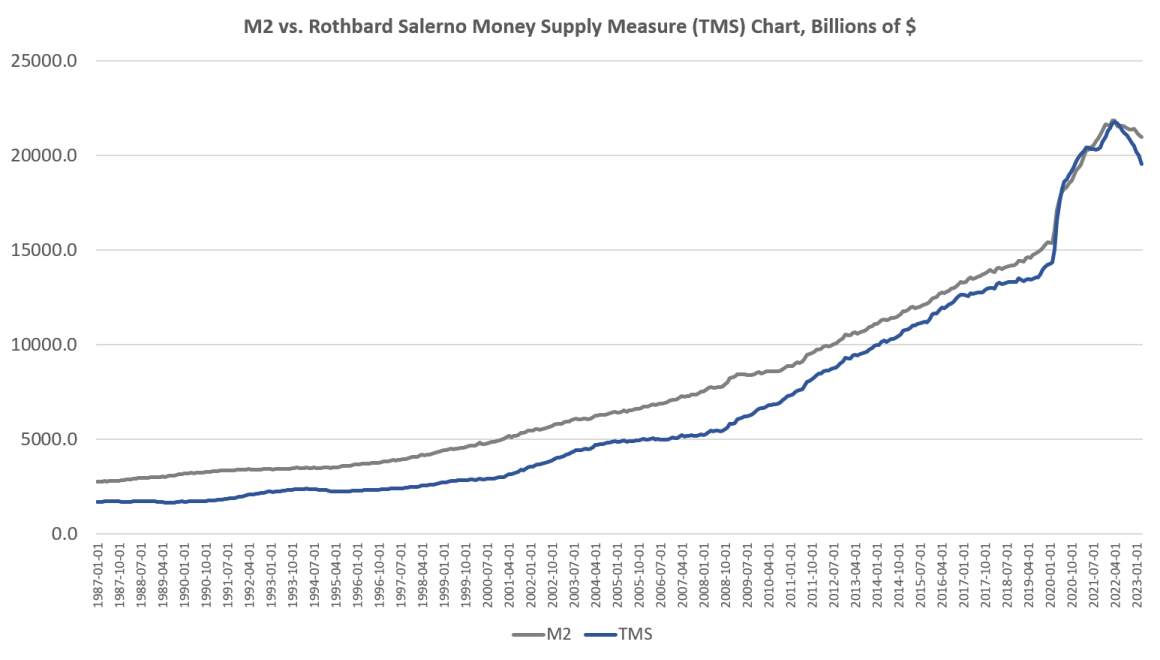
Since 2009, the TMS money supply has grown by nearly 200 percent. (M2 has grown by 145 percent in that period.) Out of the current money supply of $19.5 trillion, $5.2 trillion of that has been created since January 2020—or 27 percent. Since 2009, $12.9 trillion of the current money supply has been created. In other words, two-thirds of the money supply have been created over the past thirteen years.
With these kinds of totals, a ten-percent drop only puts a small dent in the huge edifice of newly created money. The U.S. economy still faces a very large monetary overhang from the past several years, and this is partly why after nine months of slowing money-supply growth, we are not yet seeing a sizable slowdown in the labor market.
Nonetheless, the monetary slowdown has been sufficient to considerably weaken the economy. Home prices have fallen. Credit card debt has soared, delinquencies on loans and leases are soaring, job openings are falling, and the manufacturing outlook is falling deeper into negative territory.
Money Supply and Rising Interest Rates
An inflationary boom begins to turn to bust once new injections of money subside, and we are seeing this now. Not surprisingly, the current signs of malaise come after the Federal Reserve finally pulled its foot slightly off the money-creation accelerator after more than a decade of quantitative easing, financial repression, and a general devotion to easy money. As of May, the Fed has allowed the federal funds rate to rise to 5.25 percent. This has meant short-term interest rates overall have risen as well. In April, for example, the yield on 3-month Treasurys is approaching the highest level measured in more than 20 years.
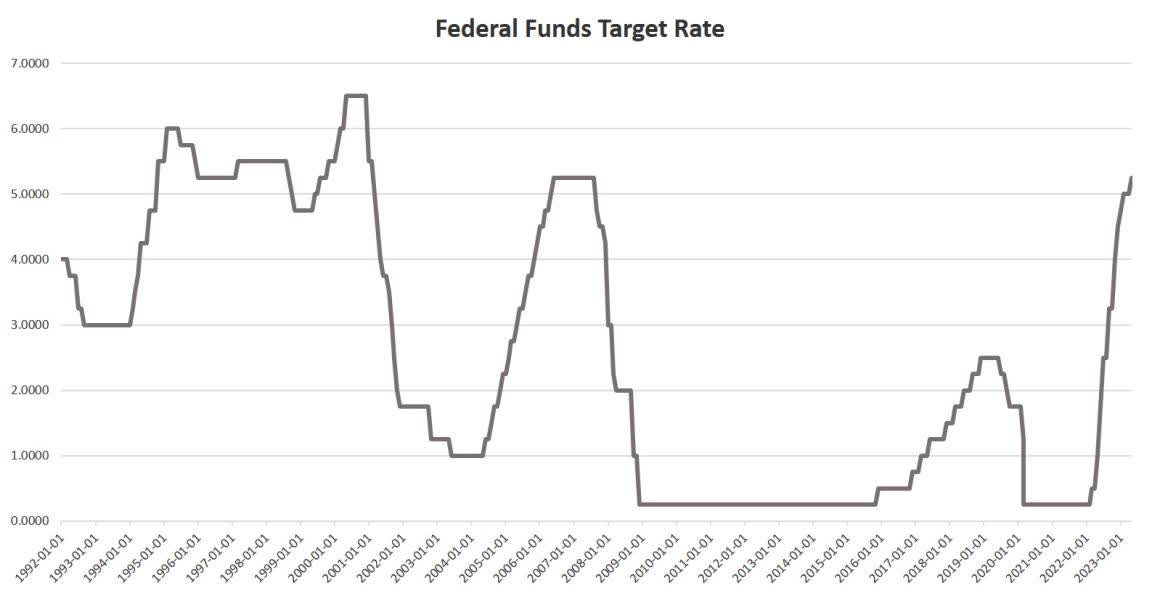
Without ongoing access to easy money at near-zero rates, however, banks are finding that they’re in trouble in spite of claims from Fed Chairman Jay Powell that the banking system is “sound and resilient.” In the latest Senior Loan Officer Opinion Survey from the Federal Reserve, researchers found that bankers believe lowered expectations for economic growth coupled with deposit outflows will lead to banks tightening lending standards. Banks have found that demand for loans has weakened as interest rates have increased and economic activity has slowed.
Banks have good reason to be worried. The last two months have produced a historic decline in bank deposits with April deposits falling deeper into negative territory than in any other month in more than 50 years.
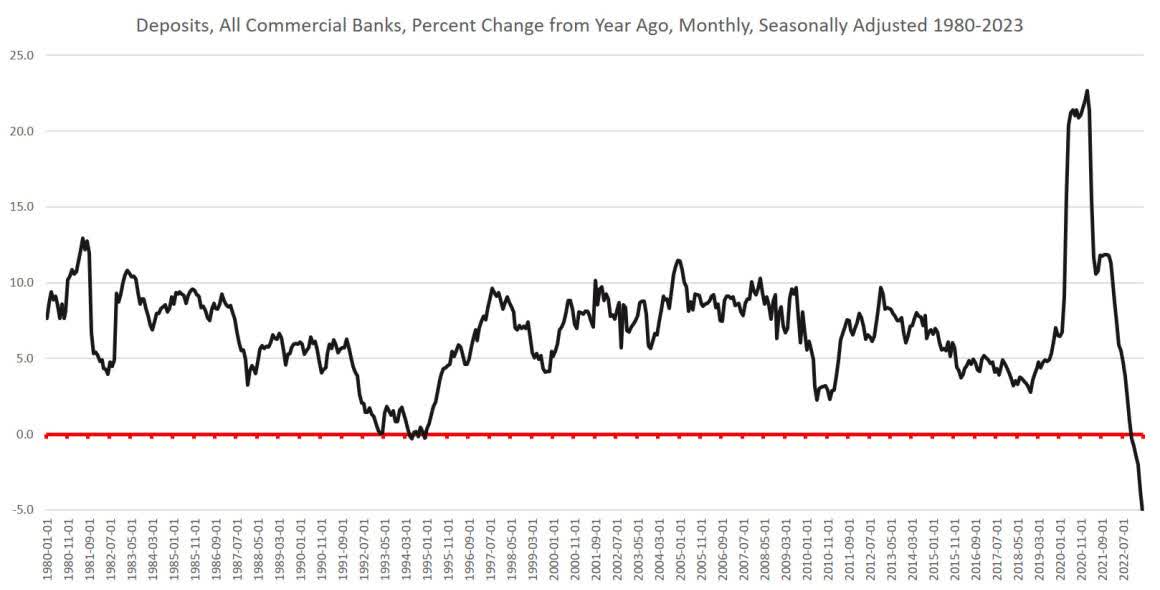
There are other indications the economy is posed for recession, as well. For example, the 3s/10s yield spread remains in negative territory. This inverted yield curve is a strong predictor of coming recession, and is closely related to a falling money supply and rising interest rates. As Bob Murphy notes in his book Understanding Money Mechanics, a sustained decline in TMS growth often reflects spikes in short-term yields, which can fuel a flattening or inverting yield curve.
This all points toward rapidly declining economic activity in an economy where real savings and investments have been hollowed out by more than a decade of easy money. Without an economy geared toward real savings and increased productivity, ongoing monetary inflation will increasingly make price inflation worse. In this fragile economy, the Fed has therefore had to choose between rising price inflation on the one hand, and a banking system teetering on the brink in the other. Inflation fears have—for now—spurred the Fed to allow interest rates to rise, accompanied by a contracting money supply. It remains to be seen how long it will take the Fed to hit the panic button and retreat back toward easy money, spurring a continuation of this cycle of mounting price inflation.
1. Murray Rothbard, America’s Great Depression (Auburn, AL: Ludwig von Mises Institute, 2005) pp. 92, 302
~~~~~
The Mises Institute
The Mises Institute is the world’s largest, oldest, and most influential educational institution devoted to promoting Austrian economics, freedom, and peace in the tradition of classical liberalism. Since 1982, the Mises Institute has provided both scholars and laymen with resources to broaden their understanding of the economic school of thought known as Austrian economics. This school is most closely associated with our namesake, economist Ludwig von Mises. We are the worldwide epicenter of the Austrian movement. Through their research in the fields of economics, history, philosophy, and political theory, Mises’s students F.A. Hayek, Henry Hazlitt, Murray Rothbard, and others carried the Austrian School into the late twentieth century. Today, Mises Institute scholars and researchers continue the important work of the Austrian School. Austrian economics is a method of economic analysis, and is non-ideological. Nonetheless, the Austrian School has long been associated with libertarian and classical-liberal thought—promoting private property and freedom, while opposing war and aggression of all kinds. The Mises Institute continues to support research and education in this radical pro-freedom tradition of historians, philosophers, economists, and theorists such as Jean-Baptiste Say, Frédéric Bastiat, Richard Cobden, Herbert Spencer, Lysander Spooner, William Graham Sumner, Albert Jay Nock, Mises, Hayek, Hazlitt, Rothbard, and many others.

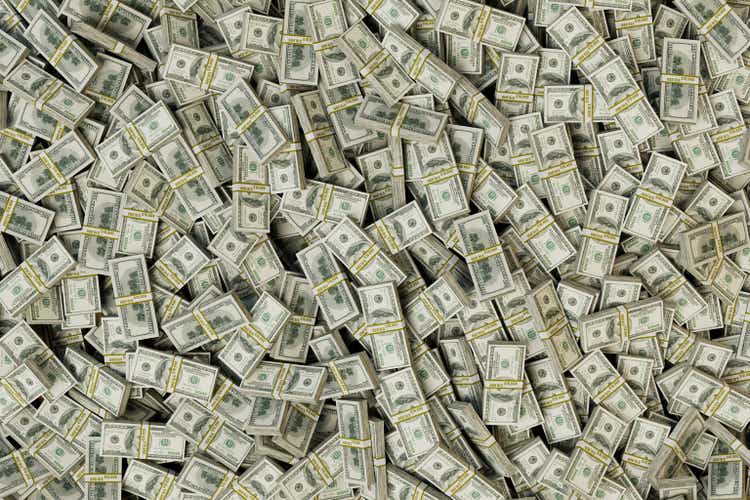


![Complete In Prayer: Jack Hibbs on Spiritual Warfare [This completes the series]](https://acrookedpath.com/wp-content/uploads/2024/04/0-71-500x383.jpg)


Leave a Reply, please --- thank you.